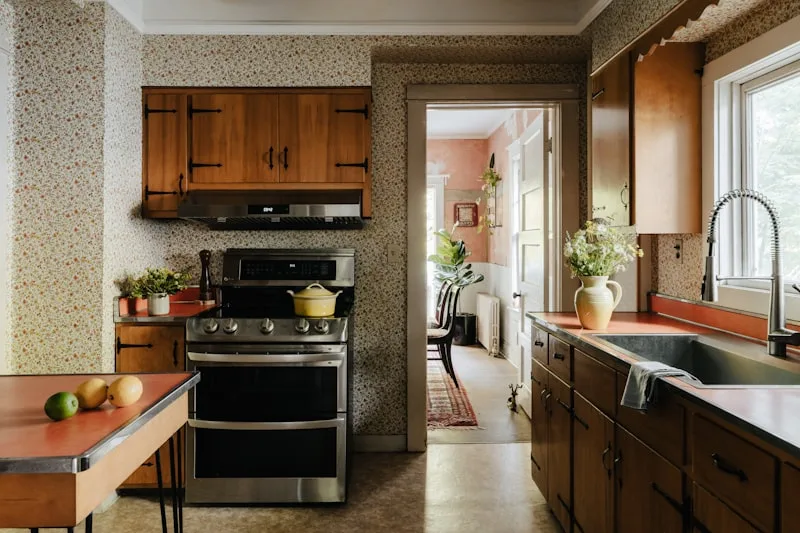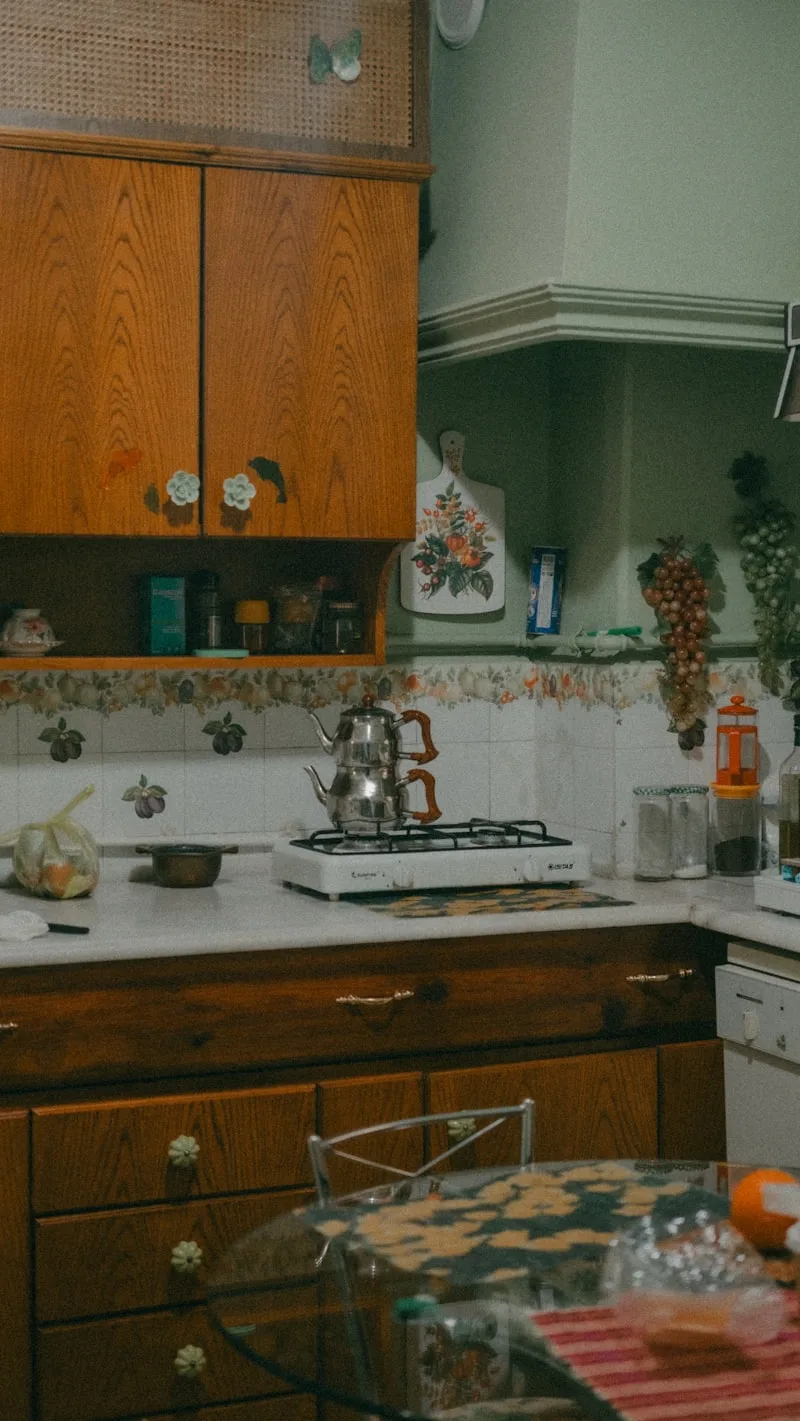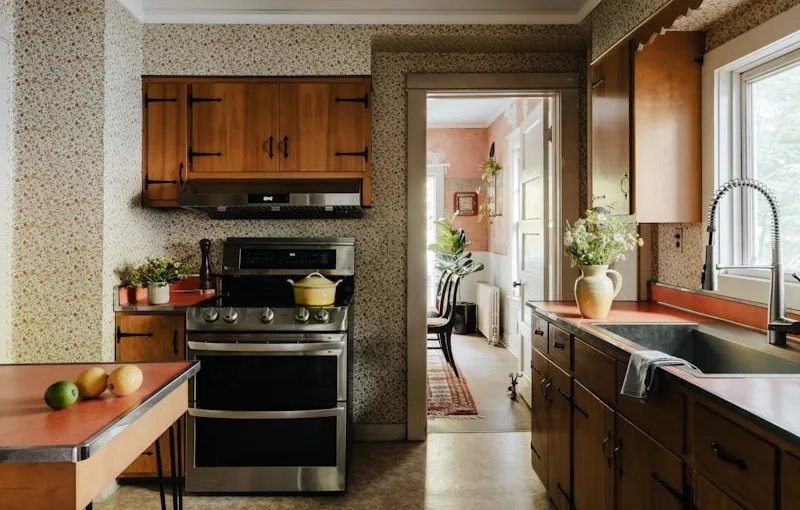Now, let’s talk about how to banish that odor for good. First off, empty those cabinets! It’s time for a little spring cleaning, even if it’s not spring. Wipe down the insides with a mixture of vinegar and water. Vinegar is like nature’s deodorizer; it’ll neutralize those nasty smells without leaving behind a chemical scent. If the odor persists, sprinkle some baking soda inside and let it sit overnight. Think of baking soda as a sponge that soaks up all the bad vibes.
But wait, there’s more! If you’re dealing with mold or mildew, you might need to step it up a notch. A solution of bleach and water can help, but be sure to wear gloves and ventilate the area. Just like a superhero, bleach can tackle those stubborn odors, but it’s important to use it wisely.
Lastly, consider adding some fresh elements back into your cabinets. A few sachets of dried lavender or activated charcoal can work wonders in keeping things smelling fresh. It’s like giving your cabinets a breath of fresh air! So, don’t let those stinky cabinets ruin your kitchen vibe. With a little effort, you can transform them from a smelly mess into a fragrant haven.
Unveiling the Mystery: Why Do Old Kitchen Cabinets Emit Unpleasant Odors?
First off, think about all the spills and crumbs that have accumulated over the years. Even the tiniest drop of sauce or a few stray grains of rice can become a breeding ground for bacteria and mold. It’s like a hidden party that you didn’t even know was happening! These little culprits can create a smell that lingers long after the food is gone.
Then there’s the wood itself. Old cabinets, especially those made from natural materials, can absorb moisture over time. This moisture can lead to a damp, musty smell that’s hard to shake. Imagine your cabinets as sponges, soaking up all that humidity and releasing it in the form of odors. Not exactly the aroma you want wafting through your kitchen, right?
And let’s not forget about the age factor. Just like us, cabinets can age and develop a certain character—sometimes that character comes with a side of stench. The finishes and paints used on older cabinets can break down, releasing volatile organic compounds (VOCs) that contribute to that unpleasant smell. It’s like your cabinets are trying to tell you they need a little TLC!
From Musty to Marvelous: Effective Solutions to Banish Kitchen Cabinet Odors
First off, let’s talk about the power of baking soda. This humble kitchen staple is like a superhero for odors. Just sprinkle some in a small bowl and place it inside your cabinet. It works tirelessly to absorb those pesky smells, leaving your space fresh and inviting. Think of it as a sponge for bad vibes!
Next up, consider the magic of vinegar. This natural cleaner not only tackles grime but also neutralizes odors. Mix equal parts of water and vinegar in a spray bottle, give it a good shake, and spritz the inside of your cabinets. The smell of vinegar might be strong at first, but don’t worry—it dissipates quickly, taking the mustiness with it. It’s like a breath of fresh air for your kitchen!
If you’re looking for a more aromatic approach, essential oils can be your best friend. A few drops of lemon or lavender oil on a cotton ball can work wonders. Place them in your cabinets, and not only will they mask the musty smell, but they’ll also infuse your kitchen with a delightful fragrance. It’s like having a mini spa retreat every time you reach for a pot!
Lastly, don’t forget about decluttering. Sometimes, the source of the smell is hidden behind old spices or forgotten containers. Clear out the clutter, and you’ll be amazed at how fresh your cabinets can smell. It’s like giving your kitchen a fresh start!
The Hidden Dangers of Stinky Cabinets: What Your Kitchen is Trying to Tell You
First off, let’s talk about moisture. If your cabinets are smelling funky, it could be a sign of hidden water damage. Maybe there’s a leaky pipe or a spill that didn’t get cleaned up properly. Just like a sponge soaking up water, your cabinets can absorb moisture, leading to mold and mildew. And trust me, that’s not just a bad smell; it can be a health hazard too!
Then there’s the issue of food storage. If you’ve got expired spices or forgotten snacks lurking in the back, they can create a stench that permeates the entire space. It’s like a science experiment gone wrong! Regularly checking your pantry and tossing out old items can save you from a nose-wrinkling surprise.
Let’s not forget about pests. A musty odor might be a sign that critters have made themselves at home. Imagine opening your cabinet to find a family of ants throwing a party! Keeping your cabinets clean and sealed can help keep those uninvited guests at bay.
So, the next time you catch a whiff of something off in your kitchen, don’t just shrug it off. Dive in, investigate, and take action. Your cabinets are trying to tell you something important, and it’s up to you to listen!
Say Goodbye to Smelly Cabinets: Top Tips for a Fresh Kitchen Makeover
First things first, let’s tackle the source of the smell. Often, it’s old food, spills, or moisture lurking in the corners. Start by emptying your cabinets and giving them a good scrub. Use a mixture of vinegar and water—it’s like a magic potion that not only cleans but also neutralizes odors. Think of it as a spa day for your cabinets!
Next, consider adding some natural deodorizers. Baking soda is your best friend here. Place an open box in each cabinet to absorb those pesky smells. It’s like having a tiny air purifier working overtime! You can also toss in some coffee grounds or activated charcoal for an extra boost. They’re like little ninjas, stealthily fighting odors while you go about your day.
Now, let’s talk about organization. A cluttered cabinet can trap smells and make it hard to find what you need. Invest in some clear bins or drawer organizers. Not only will this keep things tidy, but it’ll also make it easier to spot any expired items that might be contributing to the stench. It’s like giving your cabinets a fresh wardrobe!

Lastly, don’t forget about ventilation. If your kitchen tends to get steamy, consider installing a small fan or opening a window while you cook. Fresh air is the ultimate refresher, keeping your cabinets smelling as good as new. So, roll up your sleeves and get ready to transform your kitchen into a fragrant paradise!
Old Cabinets, New Tricks: How to Eliminate Lingering Odors for Good
First off, let’s talk about the power of baking soda. This magical powder is like a superhero for your cabinets. Just sprinkle some in a bowl and leave it inside overnight. It’ll absorb those pesky odors faster than you can say “fresh start.” If you want to kick it up a notch, mix baking soda with a few drops of essential oil. Suddenly, your cabinets will smell like a spa retreat instead of a forgotten corner of your kitchen.
Next, consider the wonders of vinegar. This isn’t just for your salad dressing! Fill a spray bottle with equal parts water and white vinegar, and give the insides of your cabinets a good spritz. Not only does vinegar neutralize odors, but it also disinfects surfaces. It’s like giving your cabinets a refreshing shower—who wouldn’t feel better after that?

And let’s not forget about the power of fresh air. If you can, leave your cabinet doors open for a few hours. Letting in some fresh air is like opening a window to a beautiful spring day. It can work wonders in banishing those stubborn smells.
Lastly, consider adding some odor-absorbing materials like activated charcoal or cedar blocks. These little guys are like the bouncers of your cabinet, keeping unwanted smells at bay. Just toss them in, and you’ll be amazed at how quickly they work their magic.
So, don’t let those old cabinets hold you back. With these tricks up your sleeve, you can breathe new life into your space and say goodbye to those lingering odors for good!
The Science Behind Stinky Cabinets: Understanding the Causes and Cures
First off, let’s talk about moisture. Cabinets, especially those in kitchens and bathrooms, can trap humidity like a sponge. This damp environment is a breeding ground for mold and mildew, which are notorious for their funky smells. Think of it like a science experiment gone wrong—when the conditions are just right, those pesky spores start to party, and you’re left with the aftermath.
Now, let’s not forget about food particles. If you’ve ever spilled something and thought, “I’ll clean that later,” you might be in for a surprise. Crumbs and spills can hide in the nooks and crannies of your cabinets, creating a feast for bacteria. It’s like leaving a pizza out overnight—eventually, it’s going to smell!
So, how do we tackle these stinky situations? Start with a good clean. Empty out your cabinets and give them a thorough scrub. Use a mixture of vinegar and water; it’s a natural deodorizer that can zap those odors away. For persistent smells, try placing an open box of baking soda inside. It’s like a sponge for odors, soaking them up and leaving your space fresh.
Frequently Asked Questions
What Are Effective Methods to Eliminate Cabinet Odors?
To eliminate cabinet odors, start by removing all items and cleaning surfaces with a mixture of vinegar and water. Place an open box of baking soda or activated charcoal inside to absorb lingering smells. Ensure proper ventilation by leaving the cabinet doors open for a few hours. For persistent odors, consider using coffee grounds or citrus peels as natural deodorizers. Regularly check for expired items and maintain cleanliness to prevent future odors.
What Causes Old Kitchen Cabinets to Smell?
Old kitchen cabinets can develop unpleasant odors due to a buildup of moisture, food particles, and grease. Over time, these substances can lead to mold and mildew growth, which contributes to the smell. Additionally, the materials used in the cabinets, such as wood, can absorb odors from the surrounding environment. Regular cleaning and proper ventilation can help mitigate these issues.
How Can I Prevent Future Odors in My Kitchen Cabinets?
To prevent future odors in kitchen cabinets, regularly clean surfaces with a mixture of vinegar and water, ensure proper ventilation, and store food in airtight containers. Additionally, place baking soda or activated charcoal in cabinets to absorb odors, and check for any leaks or spills that may cause lingering smells.
How Can I Identify the Source of the Odor in My Cabinets?
To identify the source of an odor in your cabinets, start by removing all items and inspecting for any spills, mold, or expired products. Check for signs of pests or moisture, as these can contribute to unpleasant smells. Clean the surfaces with a mixture of vinegar and water to neutralize odors. If the smell persists, consider placing an open box of baking soda inside the cabinet to absorb any remaining odors.
Are There Natural Remedies for Removing Stinky Cabinet Smells?
Natural remedies for eliminating unpleasant odors in cabinets include using baking soda, activated charcoal, or white vinegar. Place an open container of baking soda or activated charcoal inside the cabinet to absorb odors. Alternatively, wipe down surfaces with a mixture of water and white vinegar to neutralize smells. Regularly airing out the cabinet and keeping it dry can also help prevent odors from developing.
